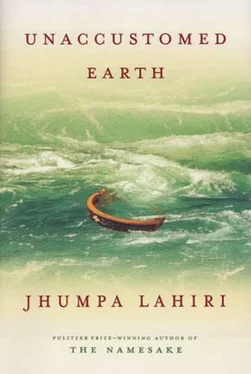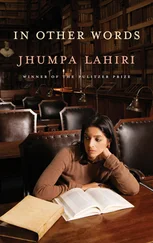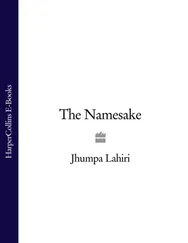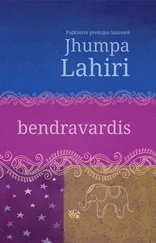I was unused, stepping into the house, to the heavy smell of cooking that was in the air. Otherwise things appeared unchanged, the black-and-white photographs I'd taken of the surrounding woods, which my mother had insisted on framing, still lining one wall of the entryway. The house had always maintained an impersonal quality, full of built-in cupboards concealing the traces of our everyday lives. Now that I no longer lived there I was astonished by how enormous it was, the soaring double-height ceiling of the living room and the great wall of glass looking out onto the trees, more befitting of an institution than a private home. There was a window-seat running along the length of the glass wall, enough space for twenty people to sit side by side, as they had during my mother's funeral.
As soon as I removed my coat, my father hung it in a cupboard, then led me to the dining table. My mother had insisted on furnishing the house with pieces true to its Modernist architecture: a black leather sectional configured in aU, a chrome floor lamp arcing overhead, a glass-topped kidney-shaped cocktail table, and a dining table made of white fiberglass surrounded by matching chairs. She had never allowed a cloth to cover the table, but one was there now, something with an Indian print that could just as easily have been a bedspread and didn't fully reach either end. In the center, instead of the generous cluster of fresh fruit or flowers my mother would have arranged, there was a stainless-steel plate holding an ordinary salt shaker and two jars of pickles, hot mango and sweet lime, their lids missing, their labels stained, spoons stuck into their oils. A single place had been set for me at one end, with translucent luchis piled on a plate, and several smaller bowls containing dal and vegetables arrayed in a semicircle.
"Sit down," my father said. "You must be hungry." He was nervous, as I was. There was no drink in his hand, no bottle of Johnnie Walker set out, as it usually was by this time, on the cocktail table.
I remained standing, uninterested in the food, staring down at the table. I was no longer accustomed to Indian food. At school I ate in the cafeteria, and during my time at home after my mother's death my father and I either went out or picked up pizzas, so that the impressive gas stove that my mother was so excited about when we moved in, with the inset grill where she said she would make kebabs, was used only to boil water for tea. I looked above the table at one corner of the ceiling and saw that it was discolored by a leak.
"When did that happen?" I asked.
"A while back."
"Aren't you going to fix it?" My father, sensitive to how buildings were put together, had always been particular about that sort of thing.
"It's a big project," he said. "There's a reason roofs should be sloped in this part of the world."
I heard no voices or footsteps, no sound of cooking or water running in the kitchen. It was as if Chitra and her daughters were discreetly hidden in one of the many cupboards of the house, swallowed up as so many other things were. "Where are they?" I asked finally.
She appeared then, walking through the swinging doors that led to the kitchen. She was closer to my age than my father's. I had known this beforehand, but seeing her was a shock. Her hair was long and dark and she had a broad nose on an otherwise pleasant face, though it was too round for me to find beautiful. She was taller than I expected her to be, a little taller than my mother. She wore vermilion in her hair, a traditional practice my mother had shunned, the powdery red stain the strongest element of her appearance.
"I would like for you to call me Mamoni," she said in Bengali. Her voice was of a lower pitch than my mother's, with a faint huskiness that was oddly calming. "Do you have any objection to that?" She asked this kindly, smiling, wary of my reaction, and I shook my head, not smiling back.
"Please," she said, this time in English, motioning to the chair.
I turned to my father and asked, "Aren't we all eating?"
"We already have." Chitra said, switching back to Bengali. "You have driven from so far. More is coming."
She returned abruptly to the kitchen and I sat down. My mouth watered, in spite of my reluctance to eat, and I was suddenly grateful for the vast amount of food in front of me. The last thing I'd eaten was a slice of fruitcake baked by Jessica's mother, whom I'd met in the course of dropping Jessica off. It was a delicious cake and Jessica's mother cut off some extra pieces for me, wrapping them in foil for the road, but I had forgotten them on the coffee table in their living room, distracted after Jessica kissed me on the four-poster bed of her childhood room.
"Start, Kaushik," my father said, sitting down in a chair beside me. "It's getting cold."
The arrangement of the bowls, small glass bowls in which we normally had ice cream, felt too formal to me. This was the old-fashioned, ceremonious way I remembered my grandfathers eating in Calcutta, being treated each day like kings after their morning baths. I wondered what was the best way to go about it, whether to take a spoonful of each dish as I went or to dump everything onto the plate at once. In the meantime I ate the luchis, still warm and impressively puffed, on their own. I was reminded of Sunday mornings in Bombay, eating luchis prepared by our Parsi cook, Zareen. I could hear my mother complaining cheerfully in the kitchen, telling Zareen to try another batch, that she was frying them before the oil was hot enough.
When Chitra returned she was followed by her daughters, two girls who at first glance, apart from a few inches in height, were indistinguishable. They were overdressed in our comfortably heated house, in thick sweaters and socks, incongruous Indian things that would soon be rejected, I knew, in favor of clothes from the mall. The sweaters were made of the same sickeningly bright shade of pink wool. The girls did not resemble Chitra very strongly. They were darker and sweeter-looking, with heart-shaped faces and two black ponytails on either side of their heads, adorned with red ribbons.
"Would you like some of this?" I asked, pointing to the luchis still on my plate, and to my surprise they stepped forward and both put out a hand, cupping their giggling mouths with the other. I saw that one of the girls, the shorter one, was missing a front tooth.
"Let Dada eat in peace," Chitra said. She had treaded cautiously in terms of what I was to call her, but now referred to me without hesitation as the girls' older brother.
"You can call me Kaushik," I said to the girls, and this made them put their hands back over their mouths and giggle more forcefully.
"What about KD?" my father suggested.
We all turned to him, puzzled, this man for whom we were now gathered together.
"Short for Kaushik Dada," he explained. I wondered if this was something that had just popped into his head or if he'd considered it carefully beforehand. He had always possessed an inventive streak when it came to words, writing Bengali poems on weekends and reading them aloud to my mother. From her comments I gathered that the poems were witty. It had been one of our family secrets, the fact that my civil engineer father was also a poet. Though I never asked about it, I'd assumed he'd stopped writing after my mother's death, as he'd stopped doing so many things.
"That's clever," Chitra said, speaking directly to my father for the first time since my arrival. She spoke approvingly, with the tone of someone who is used to acknowledging small achievements, and it was then that I remembered that she had been a schoolteacher in her former life. "Yes, KD is better."
I found the nickname inane, but my father seemed proud of it, and it was preferable to Chitra's alternative. "And what do I call you?" I asked my stepsisters.
Читать дальше












